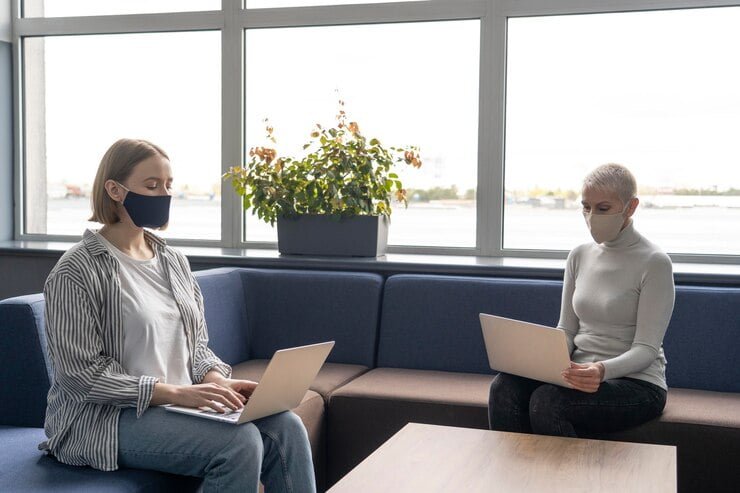
Mental health outpatient care is convenient and allows individuals to go about their usual day-to-day activities and still have access to professional assistance. Outpatient treatment consists of attending prescribed therapy, counseling, and medication appointments according to a schedule rather than remaining in a hospital or other residential facility such as in inpatient treatment programs.
This treatment option suits patients whose symptoms of mental illnesses are not very severe or moderate and eliminates the restraints of being constantly monitored. It is common for patients to step down to outpatient care from inpatient care and therefore assist the patient to keep working on their recovery while managing other aspects of their life such as work and family.
What is outpatient treatment for mental health?
In treating mental disorders, outpatient treatment entails therapy and care that does not require hospitalization or confinement within a residential facility. Patients go about their daily routines and take care of their families while attending regular appointments with therapists, counselors, or psychiatrists.
Outpatient treatment may incorporate individual and group therapy, medication management, and supportive programs. It is often appropriate for people with mild to moderate mental health problems or those who have already been treated with inpatient care and are looking for aftercare. Such an approach makes it possible for individuals to achieve the necessary attention without interrupting their normal schedules.
Types of outpatient mental health programs

A wide range of services is included in outpatient mental health programs, each with a specific approach. Some of the common types include:
Individual Therapy
This type of outpatient treatment involves direct therapeutic interaction with a patient and is focused on one specific person and his or her problems. It gives freedom to the people being treated as they can express their problems in a one on one atmosphere with the privacy and support that comes in such settings. Cognitive behavioral therapy (CBT), dialectical behavior therapy (DBT), psychodynamic therapy: All therapists have their ever effective therapeutic approaches which aim to reduce anxiety, depression, trauma, relationship issues, and other problems. Individual therapy is quite session intensive and usually lasts for approximately 45 minutes to an hour on each patient and it is done as often as it is required by the particular individual.
Group Therapy

Group therapy led by a therapist, involves the discussion of a topic by a group of individuals having the same mental problem. It provides a sense of belonging and support from the peers , reducing the feeling of isolation that many people suffering from depression have. Some of the branded themes in group therapy are, stress relief, recovery from an addiction, trauma treatment and coping with anxiety or depression. Group sessions enhance motivation, provide supportive feedback, help u t in communication, and can aid in self-development in ways popular growing up.
Intensive Outpatient Programs (IOP)
IOP is a program offered to people who are in need of greater assistance compared to those in normal therapy but who do not qualify for in-patient treatment. These types of programs are characterized by a more complex structure, with daily attendance on certain days, lasting for a number of hours. There is individual counseling along with group therapy and education on coping strategies, management of emotions, and preventing relapse. IOPs is mostly suggested to patients who are recovering from addiction, or anorexia or bulimia, or those who have experienced a severe clinical depression, anxiety, and other mental disorders.
Partial Hospitalization Programs (PHP):
Both IOP and PHP provide a greater level of care than that of IOPs, but still allow broadcasting patients to remain at home. However, often I pursue this therapy, 4 to 6 sessions have the duration of 4 to 6 hours and are provided 5 to 7 days a week. PHPs make available focused therapy, biogenic treatments, and substitutes for drugs. They suit people coming out of an inpatient program or those requiring intensive care while resuming some normalcy. This level of reclamation is frequently utilized in persons who are suffering from chronic excessive depression patients or myriad disorders such as bipolar disorder co-occurring with drugs and alcohol abuse.
Medication Management:
Thus, it can also be held responsible since medication management is one of the core elements of therapeutic management of many patients attending summating or other outpatient mental health care. In order to pursue these therapies, the patients meet with psychiatrists/advanced practice nurses/ medical assistants to determine if medications like antidepressants, antipsychotics, or mood stabilization will be indicated. Regular follow-up appointments provide assurance that medication is working, side effects are controlled, and termination/alteration of medication is appropriate. It is also common practice to incorporate medication in the course of therapy as part of a complete treatment plan.
Benefits of Outpatient Therapy

Outpatient therapy is a venture well suited for people wishing to undergo mental treatment and ensure that their day to day life continues as usual. Here are a few benefits of outpatient treatment:
Flexibility
Outpatient therapy enables patients to go on with their day to day activities such as going to work or school or taking care of family members while undergoing treatment. As such, it becomes less difficult to accommodate therapy sessions into their schedules.
Cost-Effective
Outpatient therapy is less costly as compared to inpatient treatment. It eliminates the expenses that come with hospitalization and 24-hour observation thus making mental health treatment easier to most people.
Access to Support Systems
While outpatient therapy is being done, one does not have to leave the home environment where they have family and friends who can assist them emotionally. This is important since the therapy can become an important reason for the person’s recovery.
Personalized Care
Outpatient programs are typically designed with an understanding that one size does not fit all. Whether it is individual therapy, group therapy or medication therapy management, the patients have the best treatment approach for the url referring to anxiety in the URL.
Gradual Transition
Outpatient therapy involves step down care for patients after being well for a while as they try to get involved back in their activities. It gives a cushion towards moving from an institutional setting to an independent setting.
Continuity of Care
With continuous care and follow-up provisions, outpatient programs ensure that long-term support for patients is always available. This aspect is very useful where there are chronic problems like anxiety or depression or even substance abuse problems.
Conclusion
Outpatient treatment for mental health care is advantageous since individuals are able to attend to their normal lives while seeking relief and necessary help. Services such as individual therapy, group therapy, IOPs, and pharmacotherapy hr most versatile and available to people. Such care is best suited for individuals with moderate and mild symptoms or those who have stepped down from inpatient care. Its cost factor as well as the fact that a person can still be able to maintain support makes it very popular. If you are thinking about having outpatient therapy, you should know that there are a variety of options and it is important to talk to a professional about which one would be best for the patient.